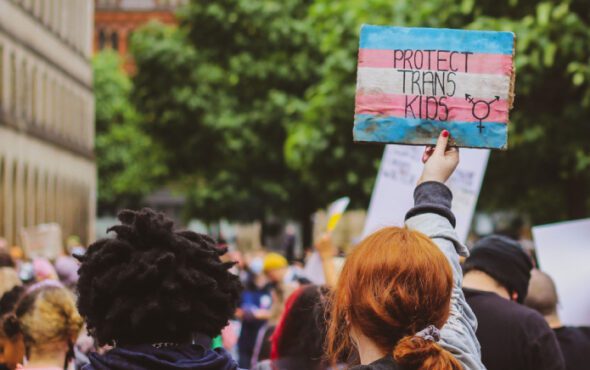
Utah has become the first US state to ban young transgender people from receiving gender-affirming healthcare this year.
The legislation prohibits minors who have not yet been diagnosed with gender dysphoria from receiving hormone treatments and restricts trans surgical procedures for young people.
Those diagnosed with gender dysphoria before the bill’s effective date will, however, will be able to receive such care if they meet specific requirements.
Republican governor Spencer Cox had not previously taken a public position on the measure, though signed it into law on 28 January – just one day after it was sent to his desk by the state legislature.
“While we understand our words will be of little comfort to those who disagree with us, we sincerely hope that we can treat our transgender families with more love and respect as we work to better understand the science and consequences behind these procedures,” he said in a statement.
READ MORE: Utah lawmakers proceed with anti-trans sports ban despite governor’s veto
Cox added that he opted to back the bill because he thought the safest thing to do was halt “these permanent and life-altering treatments for new patients until more and better research can help determine the long-term consequences”.
Lawmakers in at least 18 other states are considering introducing similar legislation.
“This bill bans access to life-saving medical care”
Utah’s chapter of the American Civil Liberties Union was among the many organisations urging Governor Cox to veto the bill.
“This bill bans access to life-saving medical care,” it said in a letter to him on 27 January. “By cutting off medical treatment supported by every major medical association in the United States, the bill compromises the health and well-being of adolescents with gender dysphoria. It ties the hands of doctors and parents by restricting access to the only evidence-based treatment available for this serious medical condition and impedes their ability to fulfill their professional obligations.”
Republican-led efforts to restrict trans healthcare are expected to impact an estimated 58,200 young people, according to a report from the Williams Institute at the UCLA School of Law released in 2022.



